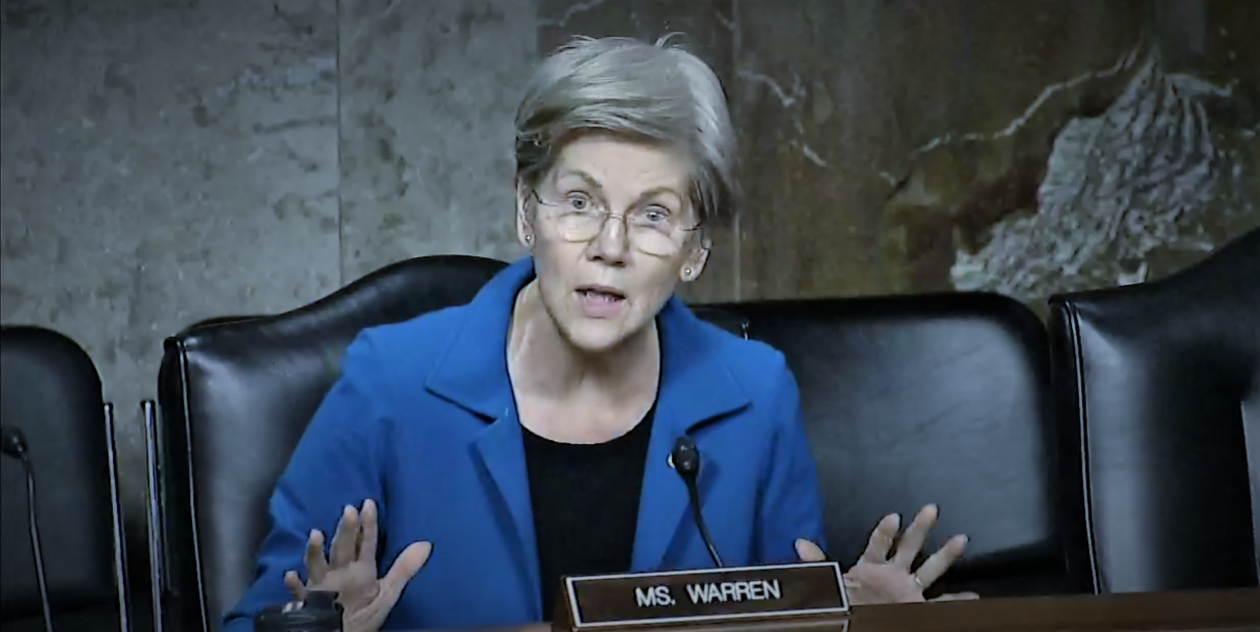Senator Elizabeth Warren, a Massachusetts Democrat, along with Republican Senator Roger Marshall of Kansas, introduced legislation on Wednesday that would require U.S. cryptocurrency businesses to follow the same know-your-customer rules as banks to prevent money laundering.
The bill, which drew a quick backlash from some representatives of the crypto industry, was released on the same day Warren appeared in a Senate committee hearing on the bankruptcy of crypto exchange FTX.
In the hearing, Warren said that crypto’s lack of regulation has made it the preferred tool for terrorists, ransomware gangs, drug dealers, and rogue states that want to launder money.
“Crypto doesn’t get a pass to help the world’s worst criminals… It is time for Congress to make the crypto industry follow the same money laundering rules as everybody else,” said the senator.
The new bill, called the Digital Asset Anti-Money Laundering Act, would bring the digital asset ecosystem into compliance with know-your-customer (KYC) requirements, which are used to combat anti-money laundering in the traditional financial system.
Warren stated: “It is illegal for a bank to take money from terrorists, and that’s why banks spend so much time and so much energy identifying who their customers are and reporting suspicious activity to authorities. A lot of crypto firms are not doing these kinds of checks.”
See related article: FTX an ‘old-fashioned embezzlement’ says new CEO as US authorities charge Bankman-Fried with fraud
The proposal from Warren and Marshall comes a day after Bankman-Fried, the former chief executive of FTX, was indicted for money laundering, amongst other offenses such as defrauding customers and campaign finance violation.
In addition to requiring platforms to track user transactions, the bill would prohibit firms from using a digital asset mixer service or other crypto-privacy technologies. Cryptocurrency mixers like Tornado Cash, which the US Treasury sanctioned in August, can conceal digital assets’ transaction history across different digital wallets.
The bill was criticised by crypto advocacy group Coin Center. In a Wednesday morning statement, it called the bill “an opportunistic, unconstitutional assault on cryptocurrency self-custody, developers, and node operators.”
The current US congressional session, set to end at the beginning of January, puts the bill under tight time constraints. As a result, the bill would need to be reintroduced when Congress reconvenes if not voted on in time.
See related article: FTX failure a ‘wake-up call’ for security, says former Mt Gox CEO Mark Karpeles

